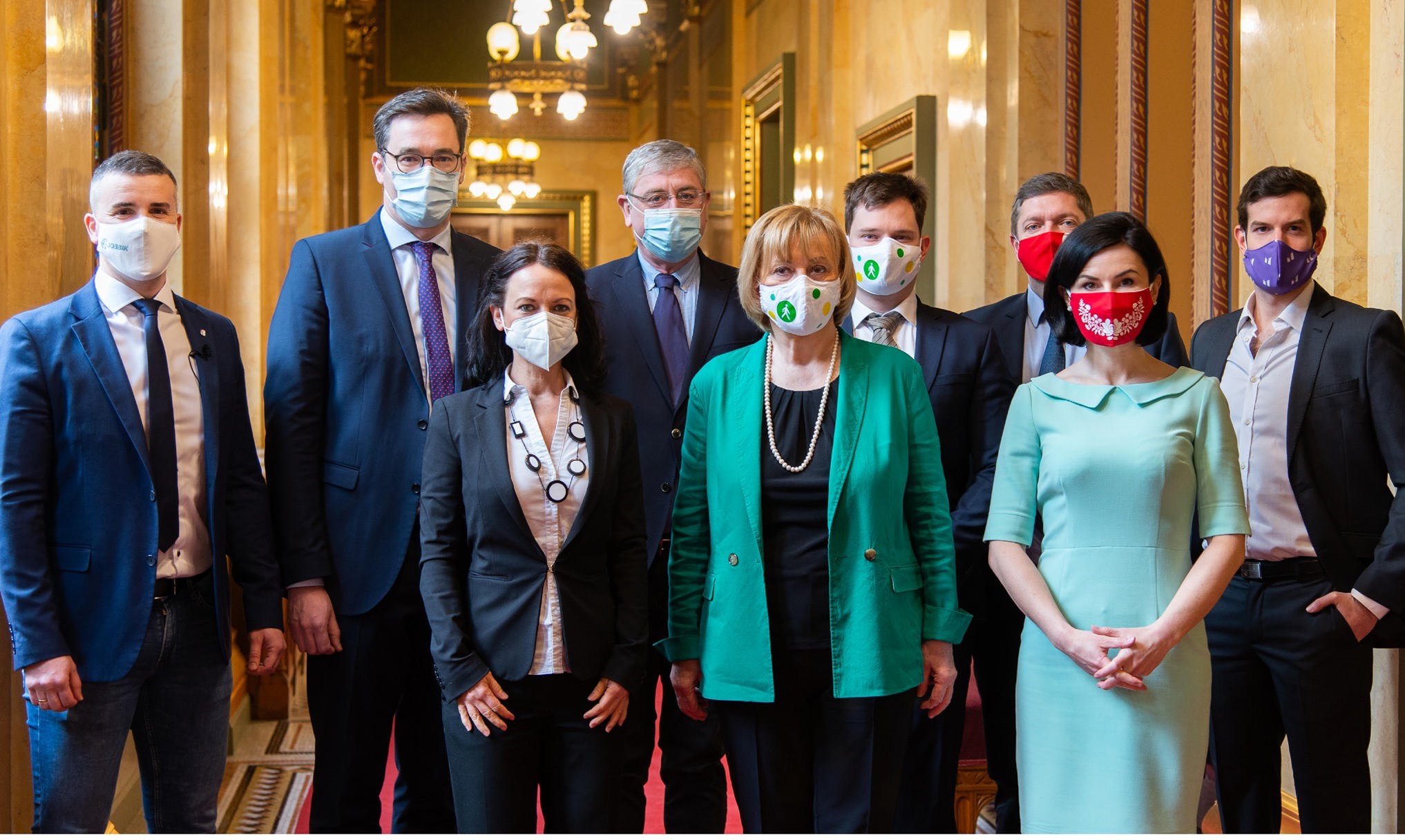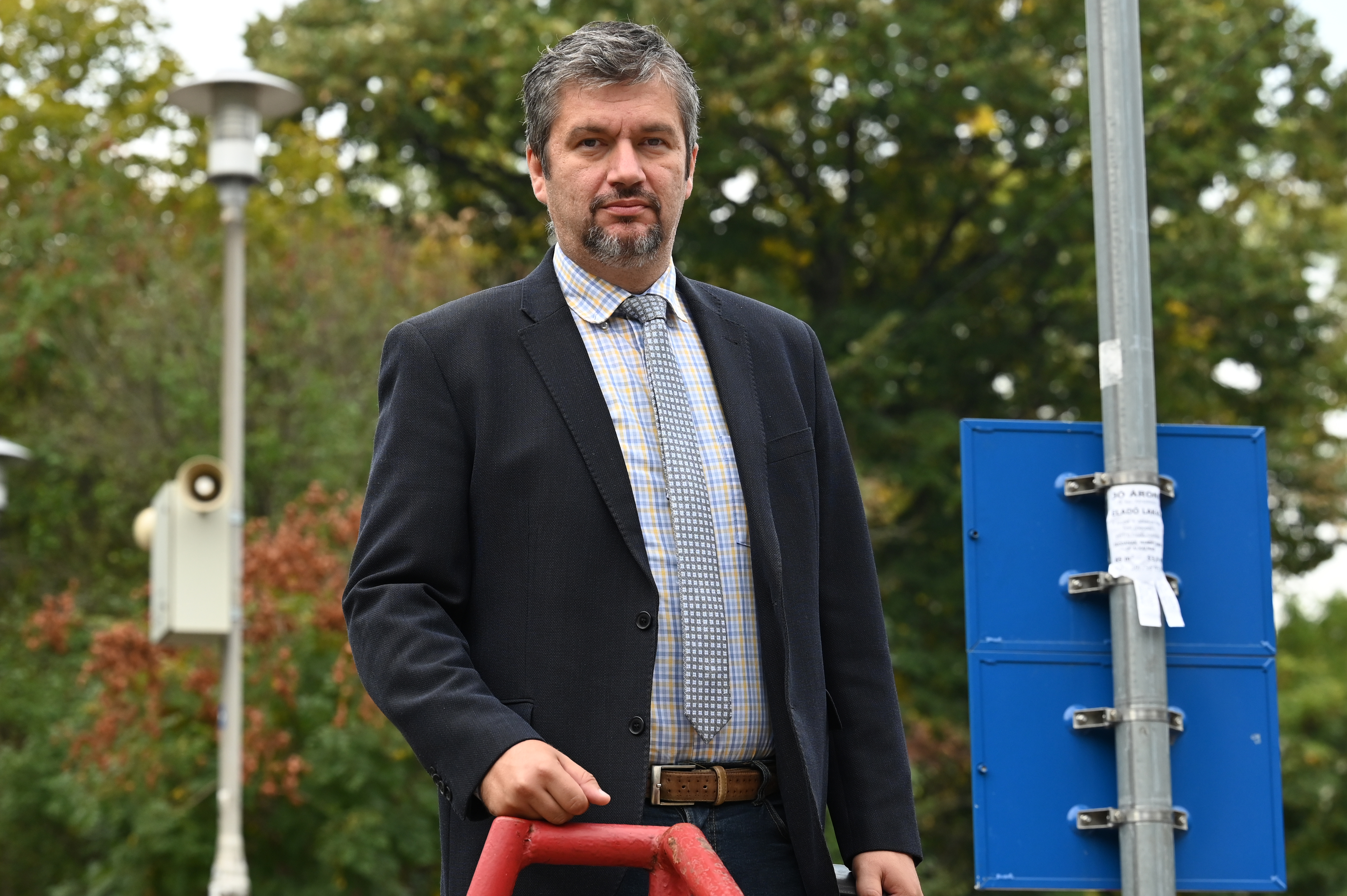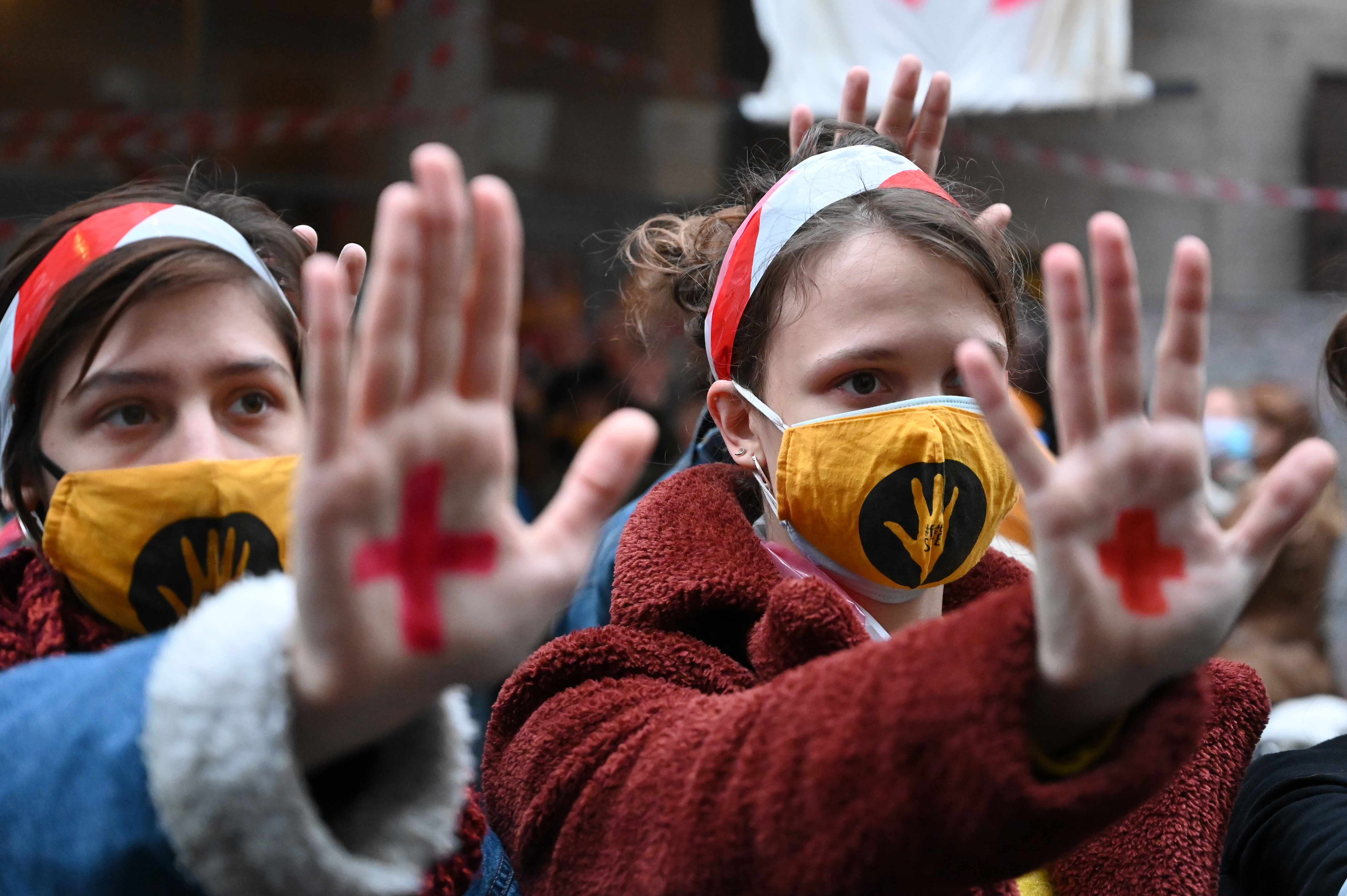Orbán aims to build new, anti-immigration right wing after Fidesz pulls out of EPP
- Stay updated on the latest news from Hungary by signing up for the free InsightHungary newsletter:
Hungary's governing party on Wednesday pulled itself out of the European People's Party's caucus in the European Parliament, the deepest fracture to date in its conflictual relationship with the conservative European political family.
Prime Minister Viktor Orbán sent a letter on Wednesday to the EPP Group's chairman, Manfred Weber, announcing that Fidesz lawmakers would quit the group. The letter came minutes after the EPP Group passed changes to procedural rules that allow for entire parties, rather than individual lawmakers, to be expelled from the Group with a two-thirds vote, paving the way for Fidesz's expulsion which was supported by many EPP lawmakers.
"The amendments to the rules of the EPP Group are clearly a hostile move against Fidesz and our voters," Orbán wrote. "Limiting our MEPs' ability to carry out their duties as elected Members of the European Parliament deprives Hungarian voters from their democratic rights. This is antidemocratic, unjust and unacceptable."
The EPP's rule change passed with an overwhelming majority of more than 84% in favor. Fidesz politicians earlier argued the change was "tailor made" to sanction the party, and threatened to leave the Group if it passed.
Fidesz's departure from the EPP Group is the latest in its long series of conflicts with the center-right political family over the rule of law and democratic values. The EPP suspended Fidesz's membership in 2019, and officials have long hinted that it would soon hold a vote on expelling Fidesz permanently once pandemic conditions allow for an in-person meeting.
In December, the EPP Group voted to suspend the head of the Fidesz delegation Tamás Deutsch after he compared Weber's stance on the rule of law to the gestapo and Hungary's communist-era secret police.
Also in December, Fidesz MEP József Szájer resigned from the European Parliament, and later from Fidesz, after police caught him escaping from a Brussels sex party in violation of Belgium's pandemic rules. Reacting to the scandal, EPP president Donald Tusk wrote on Twitter, "What else should Fidesz do for all of you to see that they simply don’t fit in with our family?"
Orbán has criticized the EPP for abandoning its Christian-conservative values, and some observers have speculated for more than a year that Fidesz could seek a place with the European Conservatives and Reformers (ECR) alongside Poland's right-wing Law and Justice party, or with the far-right Identity and Democracy (ID) group which contains Italy's Liga party, led by Orbán ally Matteo Salvini.
In a statement on Thursday, Orbán slammed the EPP for "indulging itself in power games within the bubble of bureaucrats in Brussels," and offered hints on what direction Fidesz might take after its break with Europe's Christian democrats.
"Our task is clear. Now – without the EPP – we must build a European democratic right that offers a home to European citizens who do not want migrants, who do not want multiculturalism, who have not descended into LGBTQ lunacy, who defend Europe’s Christian traditions, who respect the sovereignty of nations, and who see their nations not as part of their past, but as part of their future," Orbán wrote.
Opposition parties agree to hold primaries ahead of 2022 elections
Six opposition parties have agreed to hold primaries in all of Hungary's 106 voting districts to determine who will run for parliamentary seats in 2022 elections on behalf of the united opposition.
The leaders of the Democratic Coalition, Momentum, Jobbik, MSZP, Dialogue and LMP announced that the primaries would begin in mid-August, and that unaffiliated civil candidates would also be permitted to run if they signal which party's parliamentary caucus they would join in case of a victory. Candidates for individual districts will be choses in a single-round primary process, while selection of a joint prime ministerial candidate will occur in two rounds.
Candidates in individual districts must gather 400 signatures of support to run in the primary, and prime ministerial candidates must gather 20,000. The primary will be open to all voters who will be 18 years old by April 2022.
Several opposition politicians have confirmed their intentions to run in the primary for prime minister:
- Momentum president András Fekete-Győr
- Jobbik president Péter Jakab
- Hódmezővásárhely mayor and president of the Everyone's Hungary Movement Péter Márki-Zay
- József Pálinkás, an academic and former education minister in the first Orbán government
- Former vice-chairman of the Socialist Party (MSZP) Tibor Szanyi, who resigned from the party in January 2020, saying it was "not left-wing enough."
Additionally, Budapest mayor Gergely Karácsony is considered a favorite if he decides to run: he was the most popular potential candidate in a February poll, and earlier said he would not be a candidate for prime minister if there was no primary, which has since been announced.
Klára Dobrev, a Democratic Coalition MEP and wife of former prime minister Ferenc Gyurcsány, is also considered likely to run for the post, as well as co-chair of the neo-fascist party Mi Hazánk, László Toroczkai.
Momentum has emerged as one of the strongest opposition parties going into 2022 elections: it was announced in February that popular independent MP Ákos Hadházy would run for Momentum in the Budapest district of Zugló. Additionally, Momentum will support independent MP and former prime ministerial candidate Bernadett Szél's campaign in Pest County district 2. (Szél lost the race for that district by only 296 votes in 2018.)
The opposition's unity strategy, which includes running only a single joint candidate against Fidesz in all 106 voting districts and authoring a common political platform, is aimed at unseating Fidesz from power and precipitating what they call a "change in system." Since Fidesz's resounding victory in the 2018 parliamentary elections, the opposition has had several chances to experiment with joining forces against the governing party. In October 2019 municipal elections, the strategy delivered major opposition victories in Budapest and half of the country's largest cities.
But numerous potential hurdles remain between the coalition and election victory. Amendments to election law, passed in an accelerated procedure by Fidesz's supermajority in parliament in November, limit the opposition's options for mounting party lists, and earlier changes place restrictions on the formation of parliamentary caucuses.
Additionally, potential infighting and ideological differences could threaten the unity of the six parties. When Ákos Hadházy announced he would run in the Zugló primary against sitting representative Csaba Tóth (MSZP), Tóth reacted by sharing a video on Facebook that was critical of Hadházy and was first posted by a Fidesz mayor.
Vaccination strategy changed amid third wave of pandemic, new restrictions imposed
Hungarian health officials have changed vaccination procedures in an effort to provide initial doses to as many people as possible amid the rapidly worsening Covid-19 pandemic.
State secretary István György announced on Tuesday that doses of vaccines that were until now set aside to be administered to patients receiving their second jab will now be freed up for use as a first dose. The vaccines approved for use in Hungary have all been shown to substantially reduce the likelihood of becoming infected with Covid-19 after a single dose, and to reduce the severity of illness.
The new strategy will make it possible to provide a first dose to all of the 2.6 million people that have registered so far to be vaccinated by April 11, György said, adding that 479,800 people will receive a first dose in the next seven days.
The waiting time between receiving doses has also been extended for two vaccines in an effort to stretch supplies, from 21 to 35 days in the case of Pfizer-BioNTech and from four to 12 weeks in the case of AstraZeneca.
While accelerating the vaccination program is likely to produce favorable results in the coming weeks, current pandemic trends show that the number of deaths, hospitalizations and patients on respirators is likely to surpass record highs set during the peak of the second wave in December. On Tuesday, Hungary surpassed the United States in the number of Covid-19-related deaths per million inhabitants at 1,572, the 9th worst rate in the world.
The average age of Hungarians being admitted to hospitals with Covid-19 is decreasing, with more 40 to 50-year-old patients with no underlying conditions being hospitalized, Dr. János Szlávik, chief infectologist with the South Pest Hospital said this week. Szlávik added that a variant of the virus first detected in South Africa has also been found in Hungary.
On Thursday, Prime Minister Viktor Orbán's chief of staff, Gergely Gulyás, announced a set of new restrictive measures aimed at gaining control of the pandemic. Beginning on Monday, businesses will be closed until March 22 with only grocery stores, pharmacies and gas stations remaining open. Kindergarten and primary school students must transition to online education until April 7, and masks must be worn in all public areas. Additional border controls will also be introduced, Gulyás said.
Public media avoids mentioning political nature of knife attack
A woman was attacked on a public bus in the Budapest district of Csepel last Thursday, suffering cuts to her face after a man brandished a knife in response to a mask the woman was wearing which expressed support for students and faculty of the University of Theatre and Film Arts (SzFE).
The woman was treated for minor injuries in a Budapest hospital, and the man was later detained by police. In a statement to law enforcement, the man acknowledged that he had attacked the woman because of her mask, which became a symbol of solidarity with SzFE after its leadership resigned in August and students occupied campus buildings in opposition to government-led restructuring efforts.
Police announced that they had launched an investigation in a suspected case of "violence against a member of a community," Hungary's legal equivalent of a hate crime. While news spread that the attack, by the perpetrator's own admission, was political in nature, Hungary's public media avoided mentioning its connection to the victim's mask. (Hungary's national news agency, MTI, reported on the suspect's admission and on police statements indicating the crime was politically motivated.)
The suspect has a criminal history and has been involved in other cases of politically-motivated violence. In 2018, the man assaulted a journalist after being photographed ripping campaign posters off the walls of a Budapest metro station. He bit the journalist in the hand and followed him onto a tram, where he threatened to kill him.
In 2019, the man attacked a group of MSZP activists collecting signatures on a Budapest square. He sprayed a 60-year-old woman with a red liquid, and attacked the leader of MSZP's youth wing after he tried to intervene, biting him and attempting to strangle him with his coat.
The suspect faces 11 years in prison for committing an act of armed violence against a member of a community and for an attempt to commit serious bodily injury.
Budapest mayor Gergely Karácsony (Dialogue) and Csepel's district mayor Lénárd Borbély (Fidesz) condemned the act of violence. Borbély wrote on Facebook,
"I would like to point out that I most strongly condemn all acts of violence against any member of our community, regardless of gender, race, religion or political persuasion. The essence of our democracy is precisely that everyone has the right to express their opinion. I wish the injured person a speedy recovery!”






